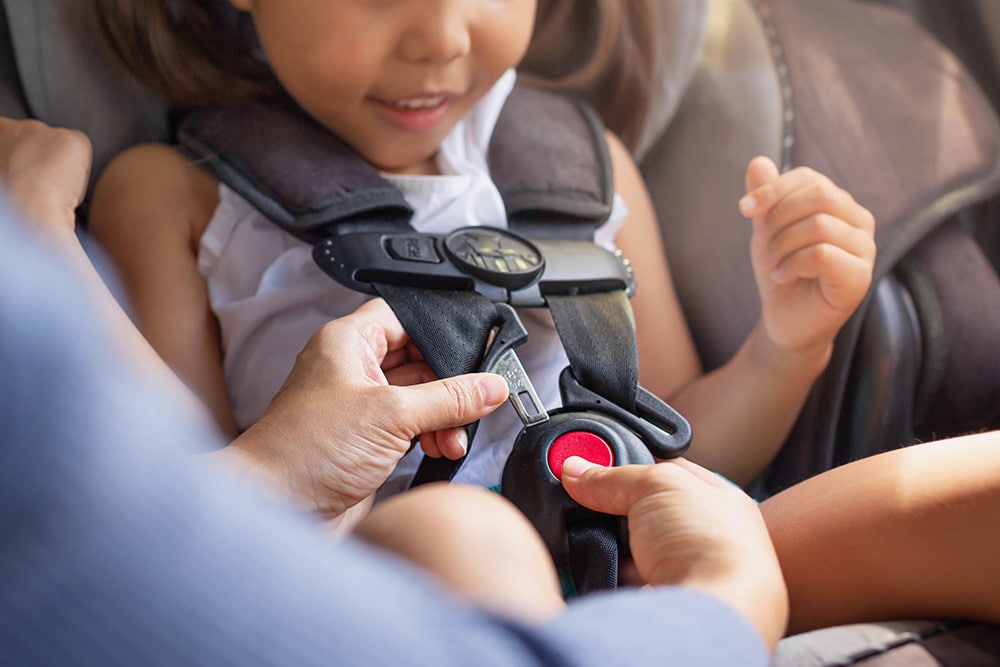When you learned you were expecting a baby, one of the first major purchases you made was probably a car seat. Along with ensuring that you are not in violation of the law, you purchased that car seat to protect your child from serious harm in the event you are involved in a collision. When you place your child in a car seat you are trusting that the car seat is safe and free of defects. Unfortunately, however, defective child car seats are often a contributing factor when infants and children are injured riding in a vehicle.
If your child was injured while riding in a defective child car seat, you may be entitled to compensation for the injuries your child suffered as well as the emotional trauma you endured because of that defect. The dedicated product liability attorneys at Bailey Fisher PLLC have over 50 years of combined experience advocating for the victims of defective products. When a defective child car seat causes or contributes to a child’s injuries, we are committed to using our skills and resources to ensure that the responsible party (or parties) is held accountable and the victims fully compensated.
How Can a Child Car Seat Be Defective?
Infant and child car seats are heavily regulated in the United States and are held to high safety standards. Despite those regulations and standards, infants and young children suffer serious injuries, including death, each year because of defective child car seats in the U.S. When a defective product causes injury, a victim may pursue a claim for damages against the responsible party (or parties) through a product liability lawsuit. The law recognizes three ways in which a product can be defective, including:
- Design Defects. A defect that is inherent in the design of a product itself is referred to as a design defect. A design defect can be found in all products manufactured using that design.
- Manufacturing Defects. A defect that is introduced into a product during the manufacturing phase is known as a manufacturing defect. This type of defect will typically only be present in those products manufactured during a specific time frame and/or at a specific location.
- Failure to Warn Defects. Some products cannot be made completely safe because of their inherently dangerous nature. When that is the case, the product must come with a warning. If a warning is missing or inadequate, the product is defective.
Steps to Take If You Suspect Your Child Car Seat Is Defective
Realizing that the car seat your child is using might be defective is a frightening experience. Knowing what to do next can help make the situation a little less frightening and provide you with a sense of control. If you suspect you have a defective child car seat, take the following steps:
- Stop using the car seat. All too often a care seat defect is not discovered until after a child is injured in a collision; however, if you suspect that your child’s car seat is defective at any time stop using it immediately. Do not put your child back in the car seat unless an expert has examined the product and alleviated your suspicions.
- Check for official recalls. When a defect has been officially recognized and acknowledged the manufacturer may issue a safety recall. Unfortunately, you probably will not be directly informed of the recall unless you took the time to register your product when you purchased it. You can, however, search the government’s database for recalls if you suspect a defect by navigating to www.recalls.gov.
- Document the suspected defect. If there is an official recall on the car seat, be sure to document the defect before following up on any recall instructions. Take pictures of the defective part or mechanism.
- Store the car seat in a safe place. If your child was injured while in the car seat, do not get rid of it. This applies even if there is an official recall that instructs you to send the car seat in for a replacement. Do not alter, repair, or destroy the car seat, and DON’T SEND IT BACK TO THE MANUFACTURER, DISTRIBUTOR, OR SELLER. Instead, keep it in a safe and secure place until you consult with an attorney and are given further instructions.
- Have your child examined by a physician. Always have a thorough medical exam conducted on your child if you have reason to believe that your child has been sitting in a defective car seat. This applies even if an accident did not spur your suspicions regarding the defect. Some car seat defects can cause injuries that are difficult to detect in small children, such as a traumatic head injury, spinal cord injury, or damage to internal organs.
- Contact an experienced attorney. The moment you suspect that you have a defective child car seat you should contact an experienced product liability attorney to discuss your suspicions and decide on your next course of action.
Get Help from Experienced Orlando Defective Child Car Seat Attorneys
The defective child car seat attorneys at Bailey Fisher Law have seen first-hand how traumatic it can be for the entire family when a child is injured because of a defective car seat. Knowing that those injuries could have been prevented makes the trauma that much worse. We are committed to identifying the parties responsible for a child car seat defect and making sure they are held legally responsible for the physical and emotional injuries that defective caused. Let us use our extensive experience and resources to work for you and your family if you suspect a child car seat defect was a factor in injuries suffered by your child.
Call us at 407-628-2929 or submit our online form today. One of our experienced Orlando defective child car seat attorneys will evaluate your case for free. For viable personal injury cases, we will follow up with the necessary legal action to hold the responsible party accountable for their negligence and recover the financial compensation you deserve for your pain, suffering, and losses.


